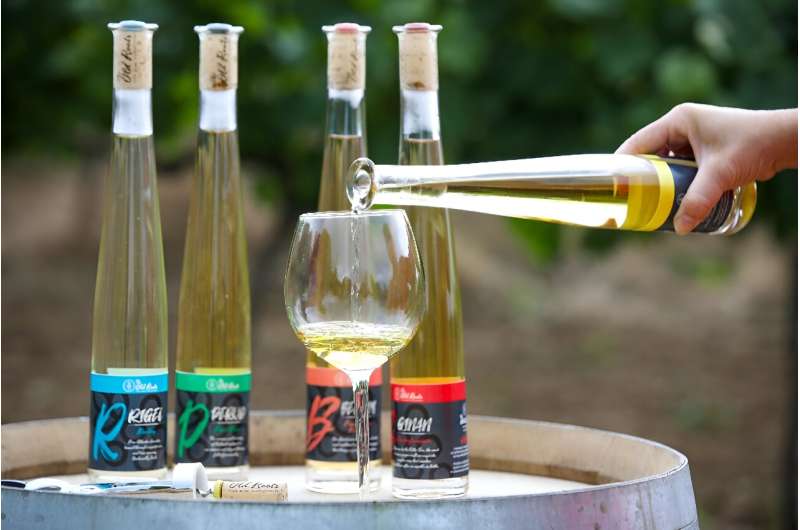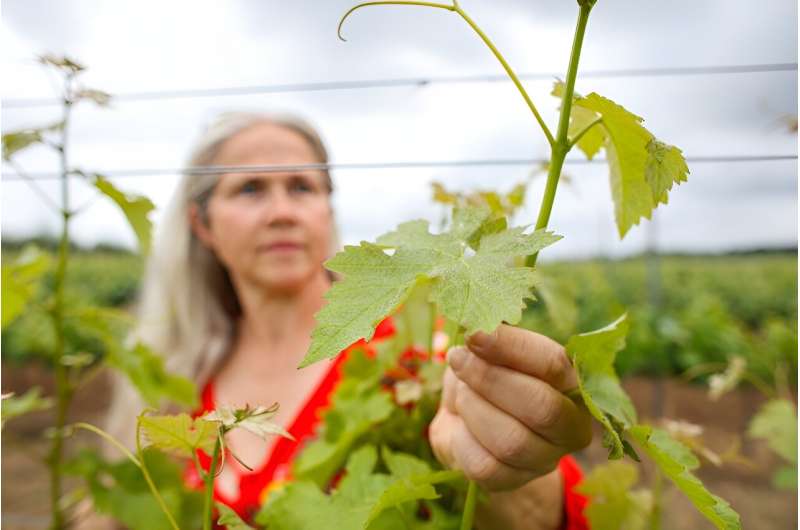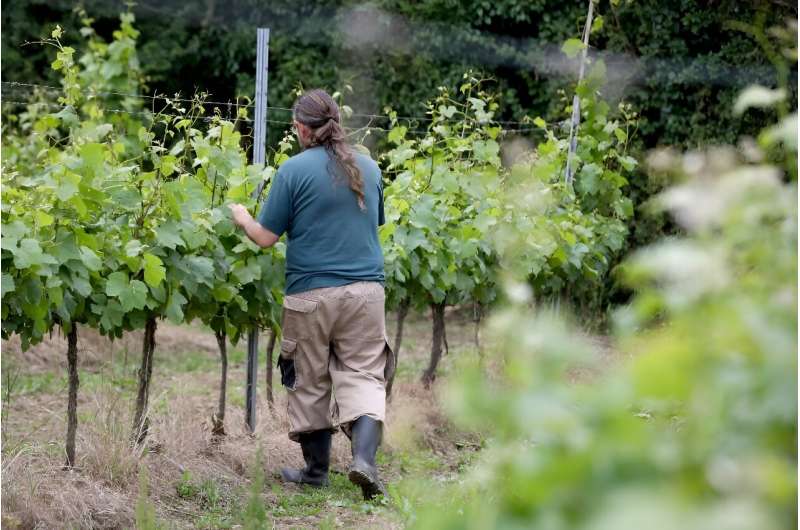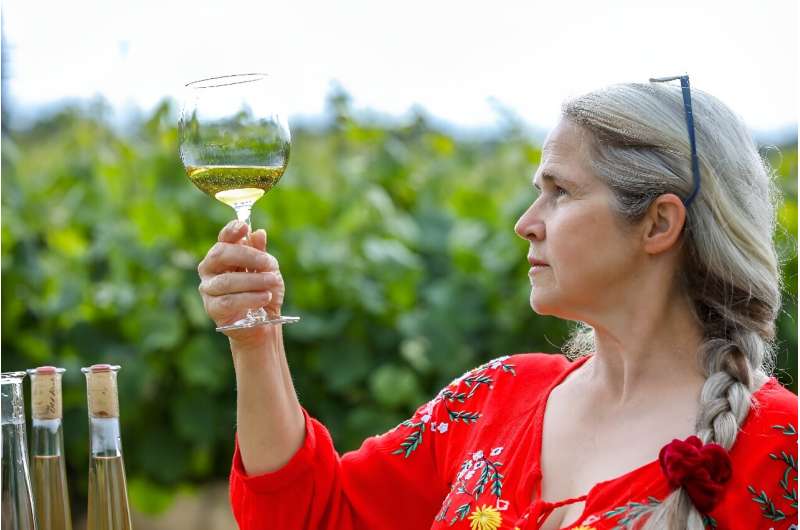This article has been reviewed according to Science X's editorial process and policies. Editors have highlighted the following attributes while ensuring the content's credibility:
fact-checked
reputable news agency
proofread
Climate change a mixed blessing for sun-starved Irish vintners

At a tiny outpost in the wine world, Ireland's handful of winemakers are cautiously eyeing long-term growth potential as climate change warms up its cool climate.
According to Ireland's meteorological service, typically rainy Irish summers are getting warmer and drier on average.
And at Ireland's largest vineyard, owner Esperanza Hernandez says "better weather makes it more possible than before to make high-quality wine" even on the sun-starved island.
Commercial vineyards, mostly dotted around the southern and eastern coasts and producing mainly white wines, are rare in Ireland.
Hernandez's 10-acre (4-hectare) vineyard lies near the village of Wellingtonbridge in the south-eastern coastal county of Wexford, statistically Ireland's sunniest corner.
"We need all the sun we can get," Hernandez, who moved from Spain to Ireland 20 years ago, told AFP as she pruned unproductive branches on a typically overcast and damp summer's day.
The rows of vines at the site which faces southwest but is sheltered from the wind, are planted wide apart to maximize sunlight reaching the grapes.
"If we take out this and that branch we can see the grapes, and the grapes can also see the sun..." said the diminutive 55-year-old who hails from a family of wine producers.
"...if it comes out at all," she smiled.

Greater 'unpredictability'
So far Ireland has been relatively shielded from dramatic impacts of climate change like wildfires, drought and death.
But agriculture still relies on a stable climate that is no longer guaranteed, even in moderate and mild Ireland.
"Climate change is not just about warmer temperatures, it brings unpredictability: frosts, storms, rain, and dry spells when there shouldn't normally be," Hernandez told AFP.
Irregular rain also means muddy soil that can prevent timely treatment of vines for fungus for example.
"You have to wait until the rain stops and the soil dries before a tractor can enter," she said.
After analysing the climate and soil in different locations Hernandez and her husband's "The Old Roots" company planted its first vines in 2015 to test the potential for quality viticulture in Ireland, and crafted their first wine in 2019.
Now they produce up to 10,000 bottles of red and white varieties annually, and have ambitious plans to expand.

But aside from the climate constraint, Irish producers face challenges unheard of in southern European climes, said Hernandez.
Machinery, technology, supplies and expert knowledge are all thin on the ground in Ireland.
"You have to bring in almost everything from abroad... it inflates threefold the cost of making wine," she told AFP.
'Far future'
David Llewellyn, who has been making wine further up the east coast near Dublin for 20 years, said the emergence of Ireland as a mainstream wine region is in the "far, not near, future".
"Our climate would need to warm significantly for us to be able to grow classic grape varieties that the market wants," the 48-year-old told AFP at his vineyard in Lusk, one of the driest parts of Ireland according to data.
"The handful of varieties that we can grow successfully and relatively reliably in Ireland are really obscure for most consumers even though they can make a good wine," he said.
With a hint of envy, Llewellyn looks at "climactic advantages" enjoyed in southern England where average temperatures are a few degrees higher than in Ireland.

"But even there, where wine production now is millions of bottles a year and there are 500 odd vineyards, English wine is expensive relative to French, Italian, Chilean and so on," he said.
According to Aileen Rolfe, an England-based wine expert, climate change is undoubtedly pushing production northwards in Europe and having a material impact on existing traditional wine countries.
"Harvests are moving from September to August to prevent sunburned grapes while growers are planting grape varieties more able to cope with heat," she said.
Sounding an optimistic note for Irish wine trailblazers, she pointed to fashionable "newbie" markets like England, New Zealand and Argentina.
"There were no vines planted in New Zealand until the 1970s, it also took a generation for English wine to be taken seriously," she told AFP.
Some conditions favorable for grape growing, like fertile soil and long hours of summer daylight, are already present in Ireland, Rolfe added.
Irish winemakers who are clever with site selection and willing to "play the long game" can reap rewards, she said.
"The future can be bright for Irish wine, it could be the English wine industry of the next generation," she added.
© 2024 AFP





















